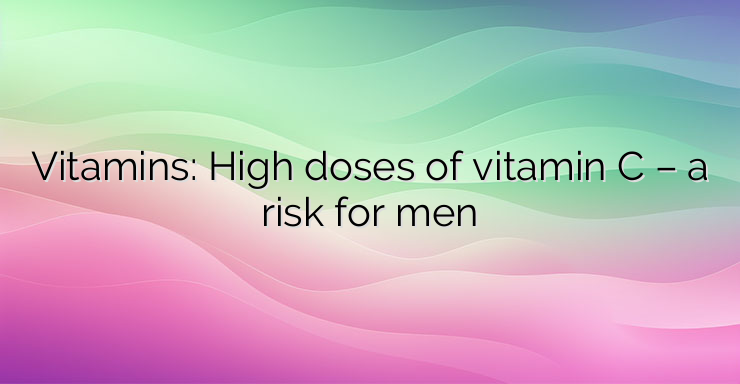A 2013 Swedish study published in the journal JAMA Internal Medicine found a statistical association between the occurrence of kidney stones and vitamin C intake among 23,000 Swedes. Their medical history was tracked over an 11-year period, which found that men taking high amounts of vitamin C were at twice the risk of developing kidney stones compared to men taking multivitamins or no vitamin supplements. In women, such dependence was not established. On average, men need 90 milligrams of vitamin C daily, and women 75 mg. The vitamin is important for the production and repair of connective tissue, skin and bone cells and helps the body absorb iron from the food it eats. Food sources such as citrus fruits and fresh vegetables can fully meet these needs, but vitamin supplements often supply 5 to 10 times the daily requirement. Many people believe that an increased intake of vitamin C can prevent the development of colds and flu, strongly stimulate the immune system, detoxify the body, protect and protect the heart, and even fight cancer. To date, however, there is not a single generally accepted and scientifically correct scientific development that confirms these properties of vitamin C. NEWS_MORE_BOX The vitamin does indeed have the property of enhancing some immune defenses, but not to the extent that meets public attitudes. In fact, none of the above benefits of the vitamin is 100% proven, but the harms of its excessive use are. In addition to the Swedish study, similar data on the impact in men are also reported by Dr. Gary Curhan and his team at the Harvard College of Public Health. According to their observations, kidney stones are most often formed by the interactions of calcium and oxalate. Metabolism of vitamin C in some men leads to the release of oxalate in particular – the more vitamin C is taken, the more oxalate can accumulate in their bodies, and the amount of oxalate accumulated is directly proportional to the risk of developing kidney stones.


Leave a Reply